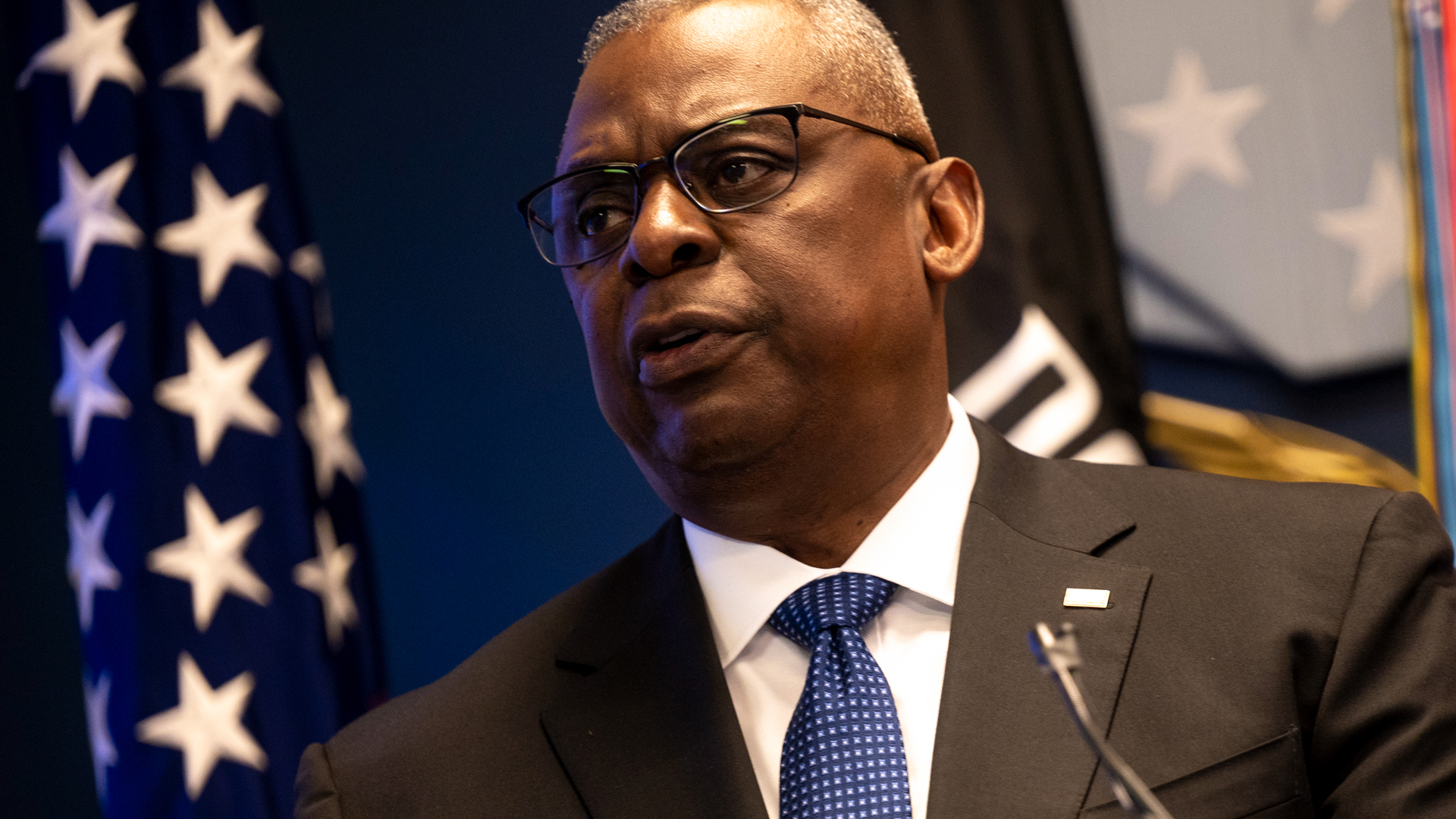

Secretary of Defense Lloyd Austin got personal this weekend, discussing his own experience growing up in a segregated United States and how the military’s integration opened doors for him. Austin delivered the commencement address on Saturday at Fayetteville State University in North Carolina, a historically black college.
The speech, titled “A Summons to Service,” called on the graduates to take action benefiting others. That could be military service, as Austin highlighted, or other avenues. Austin, the first Black Secretary of Defense, had previously served nearby at Fort Bragg (which soon will be renamed Fort Liberty).
“Service means standing firm on the American principle that all people are created equal. Service means demanding equality of opportunity for all of our children. And service means setting an example,” he said.
Subscribe to Task & Purpose Today. Get the latest military news, entertainment, and gear in your inbox daily.
Austin cited the example of Andrew Johnson, a Fayetteville State University graduate and one of the Tuskegee Airmen in World War II.
The commencement speech was also a moment for the Secretary of Defense to discuss racial equality and particularly inclusion in the military. This year marks the 75th anniversary of President Harry S. Truman’s order to desegregate the armed forces. Austin cited that, saying “that didn’t break down every barrier. But it did open new horizons for Black Americans.”
For Austin, growing up in the Jim Crow South had its struggles. He and a sister were among the first to integrate a previously segregated high school.
“I went to high school nearly two decades after President Truman integrated the military — and about 15 years after the Supreme Court ruled that so-called ‘separate but equal’ schools violated our Constitution,” he said. “But we still lived in a painfully segregated society.”
Austin’s comments come as the military has been criticized by conservatives for its efforts in diversity. The claim from conservative pundits and some politicians is that policies such as focusing on diversity, equity and inclusion means that the military has become “woke” and that “wokeness” is hurting military readiness. They’ve also blamed those efforts for the poor recruitment numbers in the last two years. Military leaders including Chairman of the Joint Chiefs of Staff Mark Milley have pushed back on those claims, with Milley in particular calling that “offensive” when speaking to the House Armed Services Committee in 2021.
Although Austin did not use the words “diversity,” “equity” or “inclusion” in his speech, he touched on the values of equality and how that has benefitted him and others. He pointed to the example his uncle, a Green Beret, set for him, showing the possibilities open to him. Austin said that in turn inspired him to join the military.
In addition to criticism of the military’s inclusion efforts, the armed forces have also been dealing with a number of incidents of far-right extremism in the ranks. Those include Neo Nazi plots to conduct insider attacks, as well as extremist groups having members go through training to learn skills for eventual plots. The Pentagon has been trying to investigate how members of these groups get into the military.
The day prior to his commencement speech, Austin visited Fort Bragg. In June the base will be renamed Fort Liberty, as part of the military’s effort to remove names honoring the Confederate States of America. The Secretary did not bring that up during his address to the students, but the ongoing renaming process aligned with many of the themes in his speech.
“And this year, we celebrate the 75th anniversary of Truman’s executive order, which let qualified patriots serve our country, regardless of the color of their skin,” Austin continued. “And it paved the path toward a U.S. military where all brave Americans can rise as high as their talents and their initiative can take them.”
The latest on Task & Purpose
- Ukraine claims Russian troops and Wagner mercenaries are fighting each other
- Star Wars’ Stormtroopers are a reminder why marksmanship is so important
- Marine veteran killed while evacuating Ukrainian civilians from Bakhmut
- US Army Special Operations Command has its first female senior enlisted leader
- Marine element conducts short-notice air defense deployment to Middle East